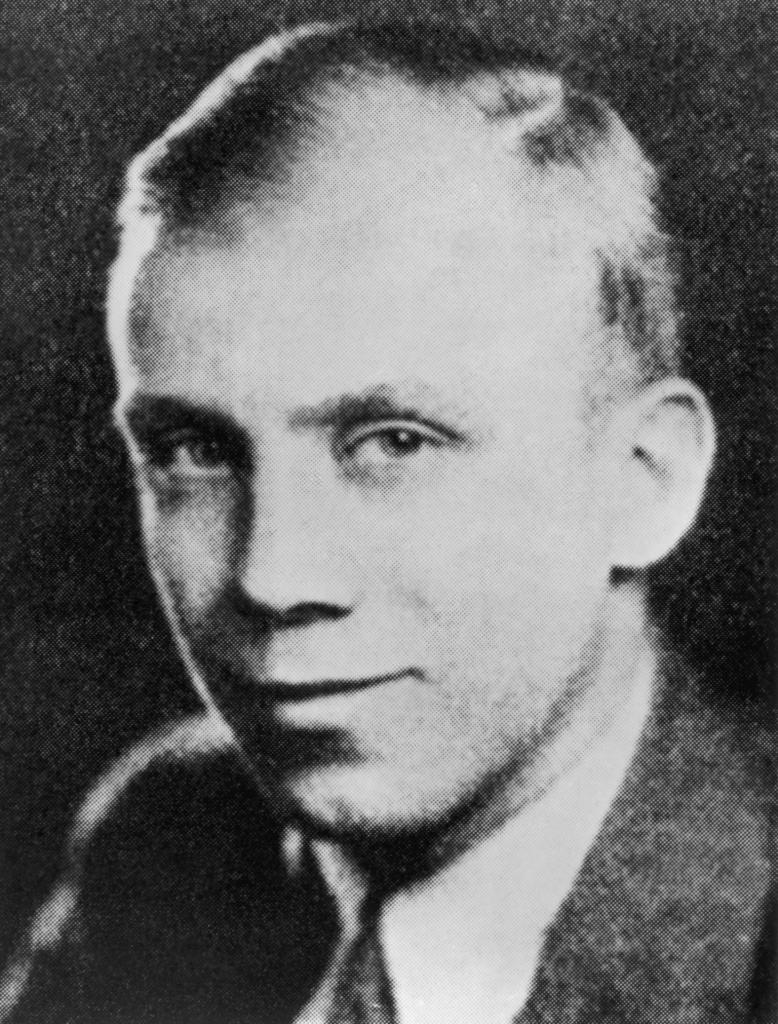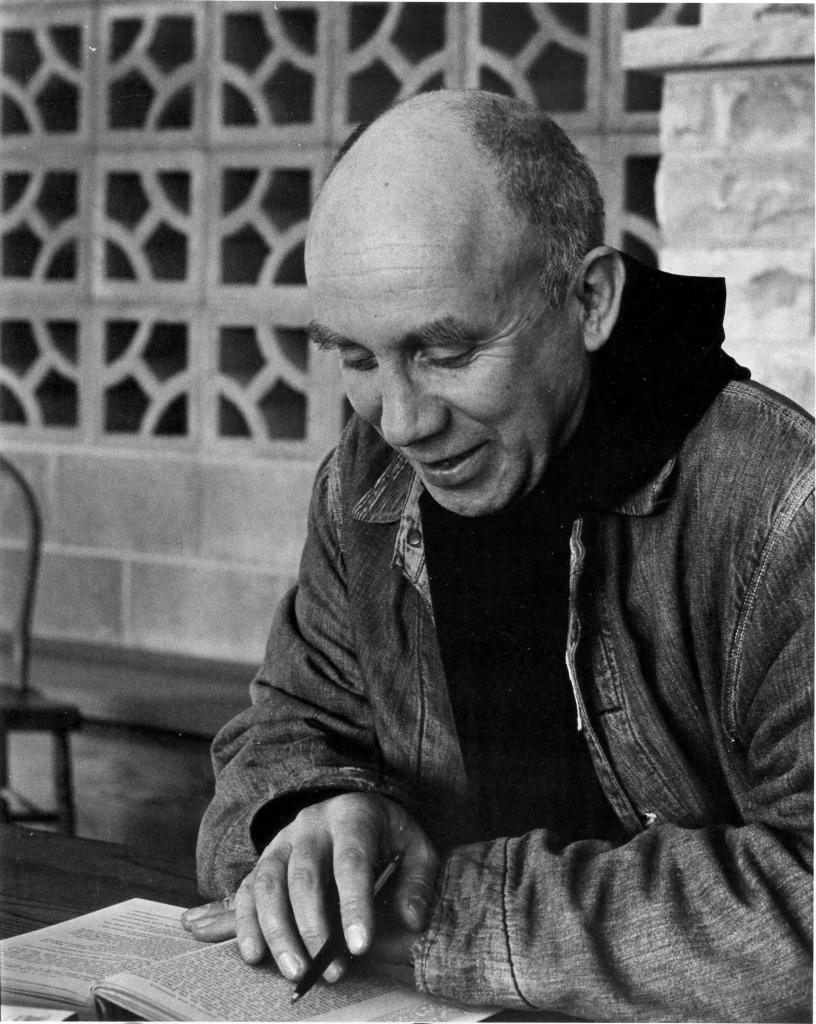Thomas Merton has many roles, but the main role in his life is the contemplative. An amazingly interesting fate and career, which, alas, did not last long, the preacher lived only 53 years. He was a poet, teacher, writer, monk, public figure and servant of God. What was his career and how did the life of the famous Zen Catholic preacher break off?
Childhood
Thomas Merton was born in France in 1915. It was a difficult war time, which, of course, reflected on the character of little Thomas. He grew up in a family of artists in a creative atmosphere. From his parents, he inherited a creative vision of the world, abstract thinking and interest in the spiritual aspects of life. Thomas's mom, Ruth Jenkins, died of cancer 6 years after giving birth. Heartbroken father, Owen Merton, took his son and moved to Bermuda. Thomas recalls the landscapes of the sea painted by his father at that time. After three years of life on the islands, Thomas and his father returned to France, where, finally, he went to study at a private lyceum.
Education
The future preacher often changes schools, he studies in France, then in England, traveling with his father. The monk will then describe these frequent trips and lack of money in his memoirs.
It is almost impossible to derive any general meaning from the constant reorganizations of our lives and our plans, which took place in my childhood from month to month. Although each new stage seemed to me a reasonable and appropriate change. Sometimes I went to school, sometimes not. Sometimes my father and I lived together, sometimes I stayed with strangers and only saw him from time to time. Different people entered and disappeared from our lives. Today we have one company of friends, tomorrow another. Everything was constantly changing. I accepted everything. And why on earth should it have occurred to me that no one else lives like that? Such a life seemed to me as natural as a change of seasons or weather. One thing I knew: all day long I can run around and do what I want, and life was enjoyable.
But in 1932, Thomas's father dies of a brain tumor, and at 17, the boy remains an orphan. He wanders around Europe, out of habit changes countries and cities in search of what he does not know. He is trying to study at Cambridge, at this time falls into despair, rushing about in matters of faith and the meaning of life. As a result, he goes to the USA to his maternal grandparents. The closest relatives were deeply religious Protestants, they support the decision of Thomas to enter Columbia University.

At age 20, the young man becomes a student and the "king of parties." He continues to lead a rather loose lifestyle, but at the same time makes good progress in his studies. He reads a lot and begins to think more and more about God, Christ and faith. This prompts him to be christened at the age of 24 in the Catholic Church. Merton decides to become a priest. But after confession in the French order they refuse him. This greatly upset the future preacher, but he did not give up his purpose. Thus begins a long journey to God.
"Seven-tier Mountain"
At 26 years old, having an excellent literary education and a poetic gift, Thomas Merton entered as a novice in Gethsemane Monastery. The essence of staying in this monastery is prayer and work. The newly-made monk enthusiastically plunges into a new world of contemplation and farming. Moreover, outgoing and cheerful by nature, Thomas becomes a silent person. Three years later, he takes simple monastic vows. At this time, he was already working on his autobiographical book, The Seven-Tier Mountain. The book comes out in 1948 and becomes a worldwide bestseller. Retreat, silence and heavy monastic vows temper the character of the famous writer, Thomas Merton, and further motivate to work on the following works.

The work was really very relevant. In the post-war period, people tired of war, cruelty and death plunged into a book about good and the search for themselves. "Seven Tier Mountain" is an interesting biography of a very extraordinary personality, a man whose life was different from the life of his peers. The loss of parents, immersion in worldly pleasures, the constant change of residence and educational institutions, the eternal search for himself, which led him to a quiet monastic monastery.
Loneliness and love
In 1949, Thomas Merton will write Seeds of Contemplation, Water of Siloe. He always talks about love, being a lonely monk. After all, having taken a vow of celibacy, he deprives himself of the most earthly human feeling - love.
During these years he actively corresponded with his followers. Over 10 years, more than 10 books have been published. They all find their reader, people are drawn to the preacher. His famous quote about love and now finds a response in the hearts of eternal romantics:
We are made for love. While we are alone, life is meaningless, meaning is born when there is another. You will not reveal the secret of your life, thinking in solitude. The meaning of life is a mystery, and it is revealed in love, through the one we love.
According to Thomas Merton, we are made for love. He urged people to love each other, to release insults, hatred and enjoy life, the nature around, the invaluable gift of contemplation of beauty.
Zen and the Hungry Birds
In 1968, Thomas Merton published another work, Zen and the Hungry Birds. Knowing several languages, the monk often engaged in translations. It was the works of Zen Buddhism that he translated that prompted him to meet with the Dalai Lama XIV.
Thomas Merton became interested in a new trend for him and delved into the practice of Buddhist meditation. In general, the spiritual heritage of the East was very fascinated by the monk in the last years of his life. He studied various practices, which caused the anger of the American authorities. After the Vietnam War, any propaganda of Buddhism and praise of the East caused discontent among officials.
Desert Wisdom by Thomas Merton was first published in 1961. This is a work of humility, loneliness and emptiness. Zen is spiritual freedom, freedom from morality and principles. Now in America, Zen is a very popular trend, and Thomas Merton discovered it for Americans.
Meanwhile, the Zen emptiness is not the emptiness of absence, but the emptiness of completeness in which there is no gain, no loss, no increase and no decrease, in which the equation holds: zero = infinity.
This subtle philosophy of Zen Buddhism and Catholicism, Catholicism and Christianity is constantly echoed in the works of Thomas Merton. He seeks the essence of knowledge and the optimal solution to the conflict of religion and man. It is not surprising that he has many followers, and the books of the preacher are so popular to this day.
Thomas Merton Books
During his life, the monk and the preacher wrote more than 70 books. The peak of his writing came in 1941-1968. It was at this time that he devoted himself to the service of Christ and, in silence, sought answers to the main questions. Thomas Merton's autobiography The Seven-Tier Mountain has become a bestseller.
Merton wrote diaries all his life, which later served as the basis for autobiographical works. One of Thomas Merton's most famous books is The Seeds of Contemplation.
The main works of the great preacher were translated into Russian only in the 1990s and immediately found their reader:
- "Inner Experience";
- "Zen and the Hungry Birds";
- "Lonely Thoughts";
- "The night Watch";
- "The Return of Paradise";
- "New seeds of contemplation";
- "Philosophy of loneliness."
Thailand
Like the life of a monk and a preacher, the death of writer Thomas Merton was also rather mysterious. In Thailand, Father Louis (his monastic name) arrived at a conference on oriental teachings. In 1968, on December 10, his life was cut short, he died from an electric shock caused by a faulty fan. In a hotel room, an absurd earthly accident cut short the lives of the great mystic and spiritual mentor of many people.